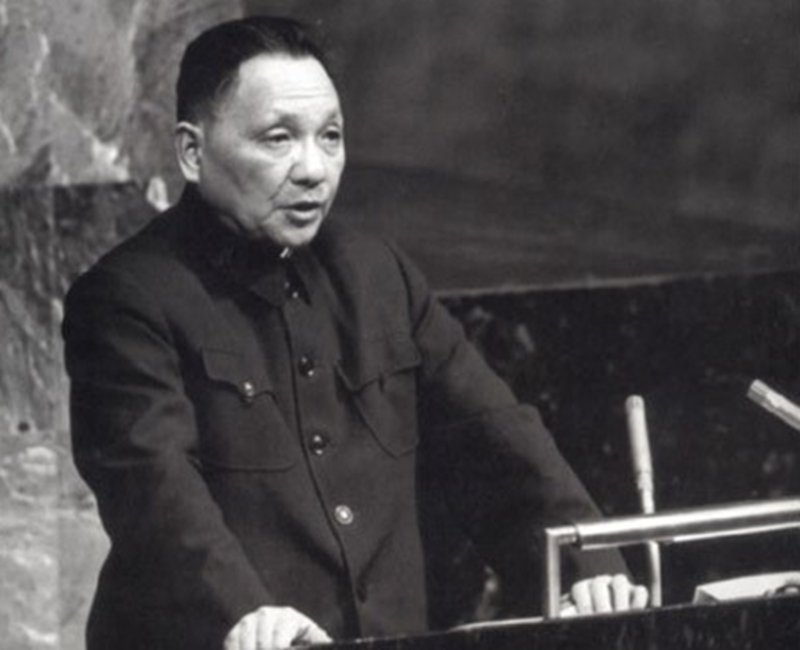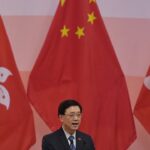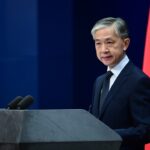In the 1970s, the United States and the Soviet Union stepped up their struggle for global dominance; the flaws in capitalism were coming to the fore; and developing countries across Asia, Africa and Latin America, who had long been subject to oppression, became more eager than ever to fight for national independence and grow their economies.
When assessing the global landscape at the time, Deng Xiaoping, then Vice Premier of China, described the situation as one of “great disorder under heaven”: The old order based on colonialism, imperialism and hegemonism is being undermined and shaken to its foundations. This “disorder” is a manifestation of the sharpening of all the basic contradictions in the contemporary world. It is accelerating the disintegration and decline of the decadent reactionary forces and stimulating the awakening and growth of the new emerging forces of the people.
On April 9, 1974, Deng Xiaoping led a Chinese delegation to the Sixth Special Session of the United Nations General Assembly (UNGA) and delivered a speech at the Session. This was the first high-level Chinese delegation to UNGA after the restoration of China’s lawful seat in the United Nations. Deng became the first Chinese leader to take the rostrum at the UN since the founding of New China. The message China would deliver and the stance it would demonstrate captured the world’s attention.
After receiving this mission, Deng personally directed the drafting of his speech, underscoring the need to convey to the international community China’s unequivocal commitment to supporting other developing countries in their efforts to defend national sovereignty, develop national economy and fight imperialism, colonialism and hegemonism.
Deng noted in this speech that China should state clearly to the world that “China is not a superpower, nor will she ever seek to be one. If one day China should change her color and turn into a superpower, if she too should play the tyrant in the world, and everywhere subject others to her bullying, aggression and exploitation, the people of the world should identify her as social-imperialism, expose it, oppose it and work together with the Chinese people to overthrow it.” These words were endorsed by Chairman Mao Zedong and put into the speech in their entirety.
On April 6, Deng left for America. Premier Zhou Enlai, despite his ill health at that time, saw Deng off at the airport with a grand ceremony. Three days later, with firm and determined steps Deng walked up to the UN rostrum and presented to the world China’s proposition of the Three Worlds Theory and its commitment of “never seeking hegemony.” At a setting where applause was usually scarce, Deng’s speech was repeatedly interrupted by rounds of applause. His remarks were highly acclaimed by delegates of various countries, especially those from the long-oppressed third-world countries. When the session was adjourned, several dozen heads of delegations came to shake hands with Deng in a show of respect, forming a long queue in front of the seats of the Chinese delegation. Deng’s speech was written into history as a classic moment in the General Debate of UNGA.
More than four decades have passed. The great majority of countries agree on the importance of upholding peace, while colonialism, imperialism and hegemonism have been nailed on the pillar of shame. Nonetheless, shadows of unilateralism, the Cold War mentality and power politics still loom over the international community.
On December 1, 2017, at the opening ceremony of the CPC in Dialogue with World Political Parties High-level Meeting, President Xi Jinping reiterated China’s commitment of never seeking hegemony or expansion no matter what stage of development it reaches. China will neither “import” models from other countries nor “export” the Chinese model or ask other countries to copy the Chinese practice.
This is a pledge China made to the international community and the code of conduct for international relations that it has always followed. Despite changes in the international landscape, China’s commitment to “never seek hegemony” has never changed, and its original aspiration to “uphold peace” has never wavered. China has honored its words, as a major country is expected to do. China has not and will never betray the solemn commitment it made to the world at the United Nations.
Deng Xiaoping Speaking at the Sixth Special Session of the UN General Assembly on April 9, 1974




